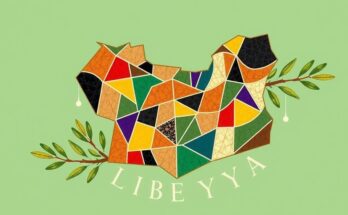African Hub misrepresented President Tshisekedi’s comments regarding U.S. military intervention for control over DRC’s mineral resources. In reality, Tshisekedi invited international investment to stabilize the DRC without military promises. His spokesperson underlined this offer includes both American and European entities to tackle illegal resource trades facilitated by Rwanda and M23 rebels.
African Hub, an influential creator on X with over 800,000 followers, misrepresented remarks made by Democratic Republic of Congo (DRC) President Félix Tshisekedi, alleging that he requested U.S. military intervention in exchange for access to DRC’s vast mineral resources. This assertion is misleading as it distorts the core message from Tshisekedi’s interview with The New York Times on February 20, where he discussed the need for international investments to stabilize the DRC, without mentioning military involvement or offering control of resources.
In response to the misinformation, DRC presidential spokesperson Tina Salama clarified on X on February 23 that Tshisekedi had invited the United States to purchase strategic raw materials directly from DRC, emphasizing rightful ownership. Salama elaborated that this invitation was not exclusive to the U.S.; it also extended to European nations, aimed at countering the illegal trade of DRC’s resources, influenced by external actors like Rwanda.
The DRC is currently engulfed in violent conflict with the M23 rebels, backed by Rwanda, who occupy substantial areas of the eastern region. The DRC is abundant in key minerals such as coltan and cobalt, essential for high-tech industries. Salama indicated that these mineral dealings are part of a broader strategy to confront the illegal activities surrounding the DRC’s rich resources, particularly influenced by the involvement of neighboring countries.
The international community has begun to recognize the complexities of the DRC’s situation. Recently, the European Union negotiated a substantial deal with Rwanda for access to minerals, which Tshisekedi condemned as facilitating resource plundering. In light of this, the EU has halted its agreement with Rwanda and is contemplating sanctions against Kigali for its involvement in the DRC conflict. Additionally, the United Kingdom has imposed sanctions on Rwanda and has paused its financial aid, demonstrating growing international pressure on the issue.
Furthermore, the U.S. Treasury Department has targeted Rwandan official James Kabarebe with sanctions due to his role in supporting the M23 rebels. These measures signify an international acknowledgment of the ongoing challenges in the DRC, as well as efforts to regulate the illegal mineral trade stemming from the region’s instability.
Tshisekedi clearly invited international companies to engage directly with DRC for mineral purchases and did not request military assistance or promise control over the nation’s natural resources. His spokesperson clarified the wider scope of this invitation, indicating that the effort aims to address the illegal mining operations facilitated by Rwanda and associated armed groups.
Original Source: www.voanews.com




